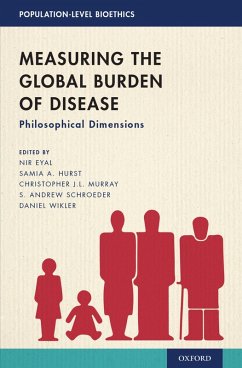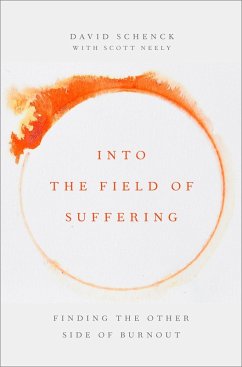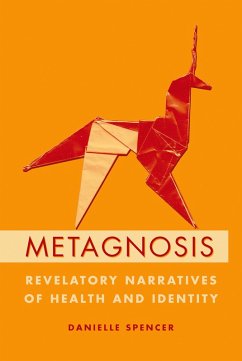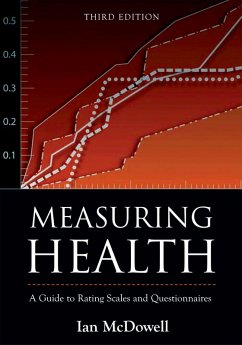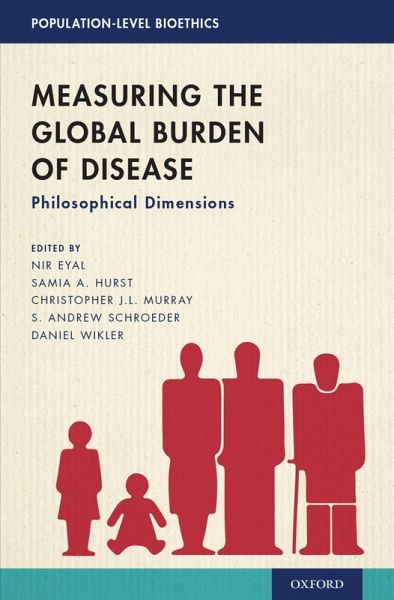
Measuring the Global Burden of Disease (eBook, PDF)
Philosophical Dimensions
Redaktion: Eyal, Nir; Wikler, Daniel; Schroeder, S. Andrew; Murray, Christopher J. L.; Hurst, Samia A.
Versandkostenfrei!
Sofort per Download lieferbar
42,95 €
inkl. MwSt.
Weitere Ausgaben:

PAYBACK Punkte
21 °P sammeln!
The Global Burden of Disease Study (GBD) is one of the largest-scale research collaborations in global health, distilling a wide range of health information to provide estimates and projections for more than 350 diseases, injuries, and risk factors in 195 countries. Its results are a critical tool informing researchers, policy-makers, and others working to promote health around the globe. A study like the GBD is, of course, extremely complex from an empirical perspective. But it also raises a large number of complex ethical and philosophical questions that have been explored in a series of col...
The Global Burden of Disease Study (GBD) is one of the largest-scale research collaborations in global health, distilling a wide range of health information to provide estimates and projections for more than 350 diseases, injuries, and risk factors in 195 countries. Its results are a critical tool informing researchers, policy-makers, and others working to promote health around the globe. A study like the GBD is, of course, extremely complex from an empirical perspective. But it also raises a large number of complex ethical and philosophical questions that have been explored in a series of collaborations over the past twenty years among epidemiologists, philosophers, economists, and policy scholars. The essays in this volume address issues of current and urgent concern to the GBD and other epidemiological studies, including rival understandings of causation, the aggregation of complex health data, temporal discounting, age-weighting, and the valuation of health states. The volume concludes with a set of chapters discussing how epidemiological data should and should not be used. Better appreciating the philosophical dimensions of a study like the GBD can make possible a more sophisticated interpretation of its results, and it can improve epidemiological studies in the future, so that they are better suited to produce results that can help us to improve global health.
Dieser Download kann aus rechtlichen Gründen nur mit Rechnungsadresse in A, B, BG, CY, CZ, D, DK, EW, E, FIN, F, GR, HR, H, IRL, I, LT, L, LR, M, NL, PL, P, R, S, SLO, SK ausgeliefert werden.




